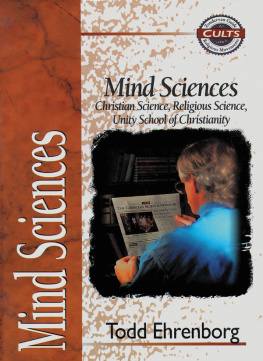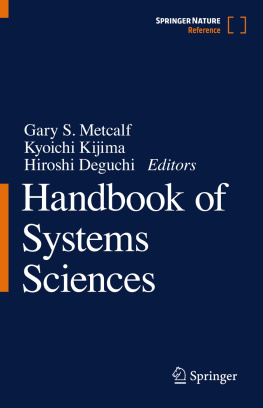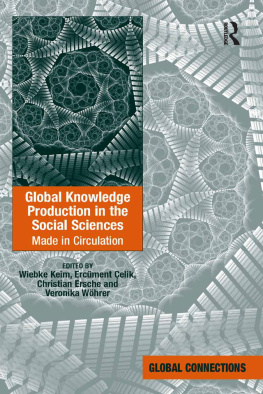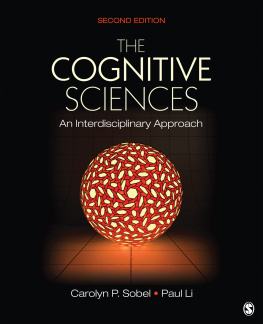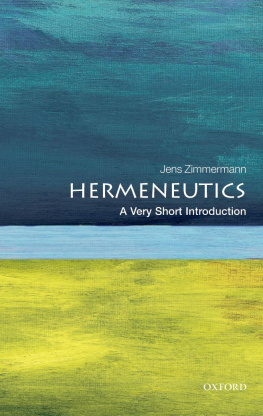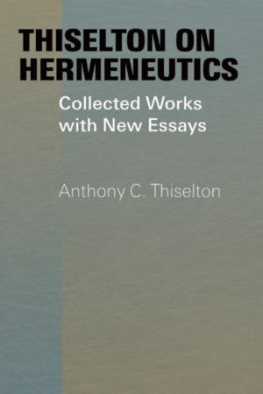RECONSTRUCTING SCIENCE AND THEOLOGY IN POSTMODERNITY
Exposing the science theology dialogue to the complex issues of postmodemity, this book presents the first major critique of Pannenbergs use of science in his theology. Although Pannenbergs name is widely known to theologians in the English-speaking world, his theological writings have received little critical analysis to date. Stewart brings Wolfhart Pannenbergs work to a wider audience, summarising his theological views and entering into critical dialogue with his writings, exploring their strengths and weaknesses.
Setting Pannenbergs appropriation of the biological and human sciences against the background of Baum ans priority of the ethical in postm odernity, G adam ers conversational mode of dialogic rationality, and Archers analysis of knowledge in social theory, Stewart argues for a more thorough recognition of values and ethics in the construction of epistemologies in both science and theology. This book offers important insights for all those concerned with issues of science and religion, bringing the relation of science and theology into contact with the philosophy of hermeneutics and the ethical implications of current social theory.
Jacqui Stewart is a lecturer in the Department of Theology and Religious Studies, and co-director of the Centre for Science and Religion, University of Leeds, UK.
ASHGATE NEW CRITICAL THINKING IN THEOLOGY & BIBLICAL STUDIES
Ashgate New Critical Thinking in Theology & Biblical Studies presents an openended series of quality research drawn from an international field of scholarship. The series aims to bring monograph publishing back intofocus for authors, the international library market, and student, academic and research readers. Headed by an international editorial advisory board of acclaimed scholars, this series presents cutting-edge research from established as well as exciting new authors in the field. With specialist focus, yet clear contextual presentation, books in the series aim to take theological and biblical research into new directions; opening the field to new critical debate within the traditions, into areas of related study, and into im portant topics for contemporary society.
Series Editorial Board:
Revd Dr Paul Fiddes, Regents Park College, University of Oxford, UK
Revd Professor Jeffrey Astley, University of Durham and
North of England Institute for Christian Education, UK
Professor Canon Anthony Thiselton, University of Nottingham, UK
Professor Timothy Jervis Gorringe, University of Exeter, UK
Professor Alan Torrance, St Andrews University, UK
Revd Professor Adrian Thatcher, College of St Mark & St John, Plymouth, UK
Professor Mary Grey, Sarum College, Southampton University and
University of Wales, Lampeter, UK
Professor Richard Roberts, University of Lancaster, UK
Professor Judith M. Lieu, Kings College London, UK
Professor Vincent Brummer, University of Utrecht, The Netherlands
Professor Gerhard Sauter, University of Bonn, Germany
Professor Terrence Tilley, University of Dayton, Ohio, USA
Professor Stanley J. Grenz, Carey Theological College, Vancouver, Canada
Professor Edward Farley, Vanderbilt University, USA
Professor Miroslav Volf, Yale University Divinity School, USA
Professor Rebecca S. Chopp, Emory University, USA
Reconstructing Science and Theology in Postmodernity
Pannenberg, ethics and the human sciences
JACQUI A. STEWART
Centre for Science and Religion
Lecturer in Theology and Religious Studies
University of Leeds
First published 2000 by Ashgate Publishing
Reissued 2018 by Routledge
2 Park Square, Milton Park, Abingdon, Oxon OX14 4RN
711 Third Avenue, New York, NY 10017, USA
Routledge is an imprint of the Taylor & Francis Group, an informa business
Copyright Jacqui A. Stewart 2000
All rights reserved. No part of this book may be reprinted or reproduced or utilised in any form or by any electronic, mechanical, or other means, now known or hereafter invented, including photocopying and recording, or in any information storage or retrieval system, without permission in writing from the publishers.
Notice:
Product or corporate names may be trademarks or registered trademarks, and are used only for identification and explanation without intent to infringe.
Publishers Note
The publisher has gone to great lengths to ensure the quality of this reprint but points out that some imperfections in the original copies may be apparent.
Disclaimer
The publisher has made every effort to trace copyright holders and welcomes correspondence from those they have been unable to contact.
A Library of Congress record exists under LC control number: 00134435
ISBN 13: 978-1-138-73841-6 (hbk)
ISBN 13: 978-1-315-18480-7 (ebk)
There is ever increasing public interest in the relations between science and religion in general, and science and Christian theology in particular. The study of science and theology requires an exceptional interdisciplinary engagement. Theology, history of science, philosophy and sociology of science, and the sciences themselves are all involved in a web of interactions. I am grateful to Haddon Willmer for suggesting Pannenbergs work in this area as an appropriate subject for study from my academic background in both theology and science.
The upheaval caused by persistent critiques of modernity has affected philosophy, theology, the arts, literature and social theory. The natural sciences have seemingly been least affected, although their situation is rapidly changing. Dialogue between theology and science must be adjusted to take account of the problems of modernity. The work of Wolfhart Pannenberg provides at least a starting point for a postmodern account of science and theology. He has combined the hermeneutical epistemology of Gadamer with a detailed account of theology and science. Pannenberg has a prominent theological anthropology, and he is at pains to demonstrate the coherence of his account of created humanity with the sciences of biology, psychology and sociology.
In this book, I examine and critique Pannenbergs elaboration of hermeneutics, and I evaluate his use of the sciences against the background of postmodernity. I do not attempt a presentation on Pannenbergs theology in itself because there are already many excellent books on this. Neither do I deal with controversial issues such as the extent of his debt to Hegel. This study is confined to a critical assessment of Pannenbergs engagement with the biological and human sciences.
Chapter One introduces Pannenbergs theological background and his anthropological presuppositions. Chapter Two presents a critique of his appropriation of Gadamers hermeneutics for theology and science, and queries Pannenbergs account of science. Chapter Three gives a critical assessment of Pannenbergs use of biology, particularly ethology and evolutionary theory, in both a scientific and a political context. Pannenbergs approach to psychology and mind is evaluated in Chapter Four, with specific attention to the place he gives to Heidegger. Chapter Five offers an analysis of Pannenbergs account of society and culture, using the work of Margaret Archer as a tool. Conclusions about Pannenbergs concept of rationality and the unitary nature of his view of reality are supplemented by further philosophical, theological and sociological critique in Chapter Six.


